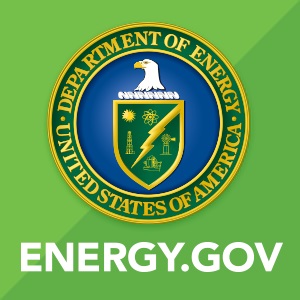The Energy Department announced up to $12 million in new projects to support the development of innovative technologies capable of generating reliable and cost-effective electricity from U.S. water resources. The four projects will advance marine and hydrokinetic (MHK) energy technologies, which can harness energy from the nation's oceans and rivers.
Two projects will test and validate wave energy converter (WEC) prototypes in open water. The tests will demonstrate wave energy's potential to compete with other forms of energy in the longer term. Two other projects will address important early-stage MHK technology development challenges.
"Research and development in MHK technology will let America develop new water energy resources that can provide reliable electricity close to load be it a remote village, major city, or distributed application, like forward-operating military bases or subsea data centers," said Alejandro Moreno, director of the Water Power Technologies Office. "MHK also provides an opportunity to develop new energy markets and create jobs."
The funded projects are:
AquaHarmonics, grand-prize winner of the Wave Energy Prize an Energy Department-funded public competition to increase the energy capture potential of wave energy devices will build a larger version of its winning device for open-ocean testing. Oregon City, Oregon-based AquaHarmonics won the Wave Energy Prize competition by demonstrating a five-fold improvement in energy capture per unit structural cost. The company will seek to upscale its device while maintaining low costs.
California Wave Power Technologies (CWPT), runner-up in the Wave Energy Prize, will upscale its WEC technology for open-ocean testing. In the Wave Energy prize, CWPT's device demonstrated more than a three-fold improvement in energy capture per unit structural cost. Through testing, the Berkeley, California-based company will validate and update estimated costs for a full-scale version of its technology.
Portland State University of Portland, Oregon, will develop a multistage, magnetically geared generator with airtight casing to improve the cost, reliability, and efficiency of MHK devices. Increasing the gear ratio through the multistage design reduces the generator size, which in turn reduces the structural support required, thereby lowering costs. The magnetic gearbox, which creates speed change without physical contact, minimizes operations and maintenance costs and provides protection from overloading during extreme events.
ReVision Consulting of Sacramento, California, will integrate wave measurements from radar and buoys to better predict ocean waves and provide data to WEC device controllers. Accurate wave-prediction technology can help WECs more efficiently convert energy from waves into electricity.
The Office of Energy Efficiency and Renewable Energy accelerates the research and development of energy efficiency and renewable energy technologies and market-based solutions that strengthen U.S. energy security, environmental quality, and economic vitality. Go to water.energy.gov to learn more about the Water Power Technologies Office, including funding opportunities and efforts to develop innovative wave energy technologies.









